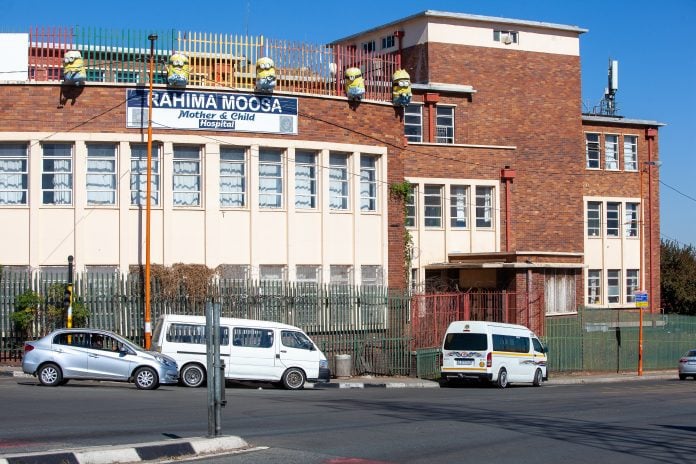The eye-opening gives the public the details of how broken the medical system is Photo Sundayworld
South Africa – Following a year long inquiry, the Rahima Moosa Mother and Child Hospital (RMMCH) report, has been released. The eye-opening, shockingly detailed and comprehensive report highlights how badly patients were treated and how dilapidated the hospital is. These problems are not exclusive to RMMCH and occur in hospitals across the country.
The RMMCH confirms the terrible state public hospitals are in and how broken down the healthcare system is, explained Dr. Akhtar Hussain, Board Director at South African Medical Association.
“There’s nothing new in that report about the public sector. Even in 2017 there was a similar report about how bad the conditions are. The situation in the public sector is broken, unsafe, patients are suffering and Rahima Moosa is not the only one.”
The core issue of hospitals
There are hospitals, like Rahima Moosa, that operate without a blood bank. Hospitals that have little equipment or have to use broken equipment. All these issues stem from one thing, a system that is rotten and broken, said Hussain.
“Management is nowhere to be seen. Imagine if you are a CEO in a hospital and you only go to work 180 days in a year. You take out Saturdays, Sundays and holidays and you left with maybe 60 days or 70 days. How can someone run a hospital like that? When the report comes out then the minister wants to replace the CEO. That won’t solve the problem. The core issue is the whole system is rotten.”
Gauteng has a backlog of about 170 000 surgeries. People wait for almost ten years to get a transplant and it is no different across the country, said Hussain.
SMread: Joburg Bridges on the Verge of Collapse
Cutting costs is costing lives
There are many patients waiting at home for much needed surgery. Either there are no doctors available or something is broken in the theatre. Government is trying to cute costs but the methods they are using is impacting how hospitals run and function, said Hussain.
“All of this is due to budget cuts. They are saving money despite the risks posed to patients. This is not acceptable. We have been telling the government there is a critical shortage of doctors, nurses and ambulances but nothing happens. If a doctor resigns today, we are supposed to replace them. Instead they will take out that post from the system and say there is zero vacancy. There are so many doctors looking for jobs.”
With many specialist doctors leaving the country due to feeling overworked and overburdened, South African hospitals is at risk of being without specialists.
What needs to be done to improve hospitals
This is not the first time Rahima Moosa Hospital has been in the spotlight. Dr Tim De Maayer put the hospital under the investigating light last year when he wrote an open letter to administrators at the Gauteng Department of Health explaining the situation at the hospital. Since then, not much has been done and the hospital has only gone further downhill.
For Hussain, the problems don’t lie in the policies but as always, the implementation of said policies. People are in positions they are not qualified for and this all needs to change.
“The policies are there but they are never implemented. The managers don’t walk around to see what is the condition of the hospitals. Hospital boards are filled with connections who come once or twice a month, have a meeting and then go. Nothing is implemented … You cannot have medical doctors running a hospital who do not have management skills.”
The Minister of Health, Dr. Joe Phaahla, said they will be holding talks with the province to find lasting solutions. Hussain doesn’t have much hope things will change but only time will tell if this report kick starts the rebuilding of the health sector.
To hear more about the problems and solutions from Dr Akhtar Hussain, listen to the podcast here:
